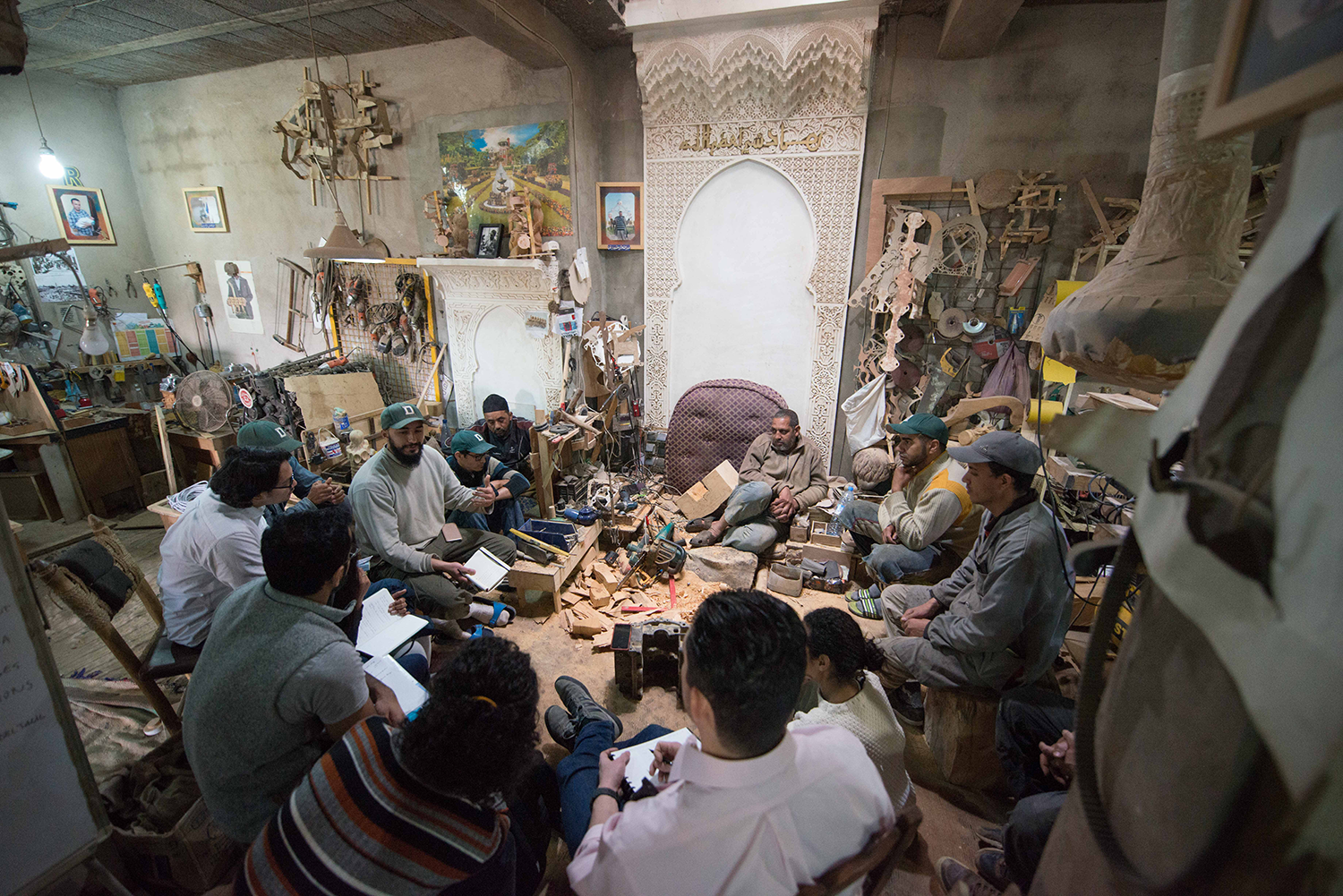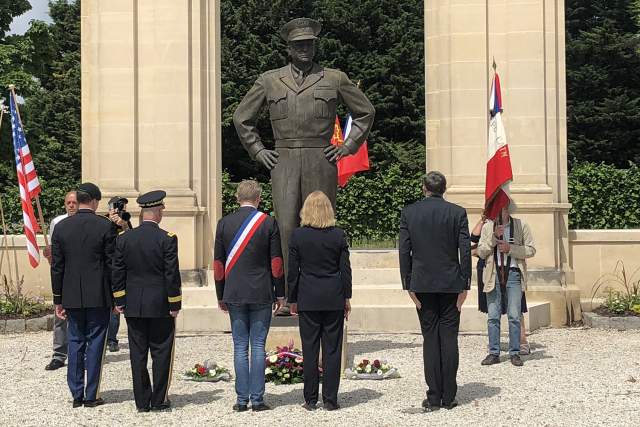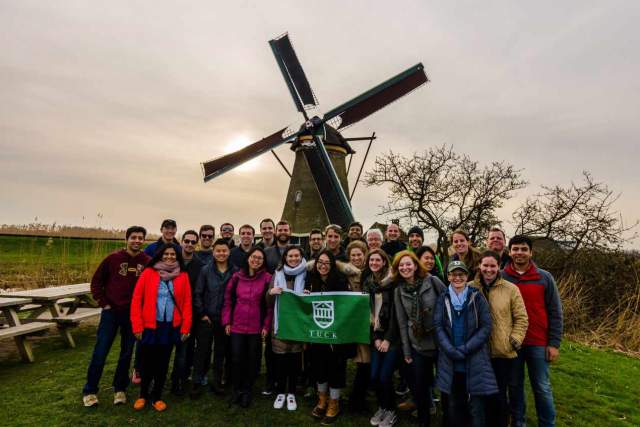Global Learning that Inspires
Lisa Miller, the director of TuckGO-Global Insight Expeditions and TuckGO, discusses the value of Tuck’s global requirement.

"On GIXs, students learn through reflection on experience, primarily," says director of the GIX course Lisa Miller.
There’s no better way to learn about the world of business and other cultures than by going overseas.
That’s why each spring, Tuck students enroll in Global Insight Expeditions (GIXs), courses taught around the globe by faculty who teach Tuck’s core and elective courses, as well as Dartmouth professors. This past March, 278 students and 16 faculty traveled to 12 countries on GIXs. The students, who fulfilled the TuckGO global requirement through the courses, learned how business is run in diverse environments and the viewpoints of local people on business-related issues.
This year, against the backdrop of an increased focus on renewable energy, Tuck added a new GIX in Morocco, a country that is investing heavily in renewables.
Here, in an interview with Tuck News, Lisa Miller, director of the Global Insight Expedition course, discusses the addition of the Morocco GIX and talks about the ways in which GIXs enable Tuckies to develop a global mindset, which is a key characteristic of a wise leader.
Why did you decide to establish a GIX in Morocco?
We try to expose students to important global business issues through GIXs, and we also try to provide geographic diversity and coverage. For a long time, we’ve offered a GIX in South Africa. Last year, we added Ghana and Morocco. Morocco, which hosted the 2016 United Nations Climate Change Conference, is investing heavily in a renewable energy future. It provided an excellent venue for us to examine, in partnership with the Revers Center for Energy, a very timely topic.
What were the course activities on the Morocco GIX?
Students toured a wind farm in Tangier in the northern part of the country. They also went to Ouarzazate and saw a large solar facility in the desert. We arranged time for them to hold discussions with leaders at the Morocco Agency for Sustainable Energy, which is crafting the country’s sustainable energy strategy, and Cluster Solaire, a nonprofit that promotes solar energy in the country. They also had meetings at the American embassy and a polytechnic university, dinner with a Moroccan family, and learned how to bargain for goods in one of the medinas—a traditional neighborhood—in Fez.
When you design new GIXs, like the one in Morocco, what do you always keep in mind?
Each GIX should examine an academic topic and allow students to cultivate a global mindset. We also want students to experience things that they wouldn’t be able to do on their own. In Morocco, we examined how the political and economic systems, values, beliefs, social norms, and regulations were impacting the renewable energy space. We also provided them opportunities to speak with local people and see their perspectives.
How do you decide what countries to send students to?
In addition to identifying places where we can explore interesting business topics and providing geographic diversity, we get ideas from students. Pascal Mensah T’18 was able to help us set up the course activities for a GIX in Ghana. When he went to Ghana over winter break to see his family, he conducted lots of meetings for us to set up activities there. He worked with professor Joe Gerakos to put together an incredibly rich program for 26 students. That’s not uncommon.
How do you determine which faculty teach which GIXs?
All our faculty have experience that is relevant to the GIX in question. Some are experts on the course theme, others lived or did research in the country. For example, Gordon Phillips, faculty director of the Center for Private Equity and Entrepreneurship, who has done research in China, taught our GIX on entrepreneurship and venture capital in that country. For the Morocco GIX, we paired April Salas, executive director of the Revers Center for Energy, with Dartmouth’s Dirk Vandewalle, an expert on the Middle East and North Africa.
How is the teaching different on a GIX versus the classroom?
Teaching a GIX is not exactly like teaching in the classroom, but there’s a lot of crossover because like any other course, you have to define the interesting questions the course will address and engage students in the learning process. However, on GIXs, students learn through reflection on experience, primarily. One of the roles of the faculty is to help students reflect on and put their experiences into context. This happens through scheduled reflection sessions and also impromptu conversations. Students really appreciate the opportunity to explore the course themes and countries with faculty, and to get to know them as scholars and people.
What skills do students learn on the expeditions?
The world is complex, and it changes so quickly. There’s always more to learn, and GIXs help set up our students to be lifelong learners. The GIX teaches students how to ask the right questions. The more you learn from other points of view, the better your judgment and decision-making. By being exposed to local people and experiences, students learn empathy and how to be confidently humble. Let’s say I want to try and understand how many ordinary Ghanaians make a living. I could learn about this through just reading. However, I could also visit a market, which our students did. They saw the stalls and listened to the discussions that were happening. There’s so much you can learn by combining background knowledge and context-setting with experience and reflection.
What advice would you give students when choosing a GIX?
Choose a course topic that’s of interest to you. This will ensure that you’re engaged. Don’t avoid countries that intimidate you. Your experience will pay off, even if it’s hard. I meet a lot of students who have only traveled in their own region of the world. Going somewhere different provides the greatest opportunity for learning and increased confidence. I have a lot of students come back from a country they initially found intimidating and say, “I could do an overseas assignment there.” In today’s global economy, that’s really important.

